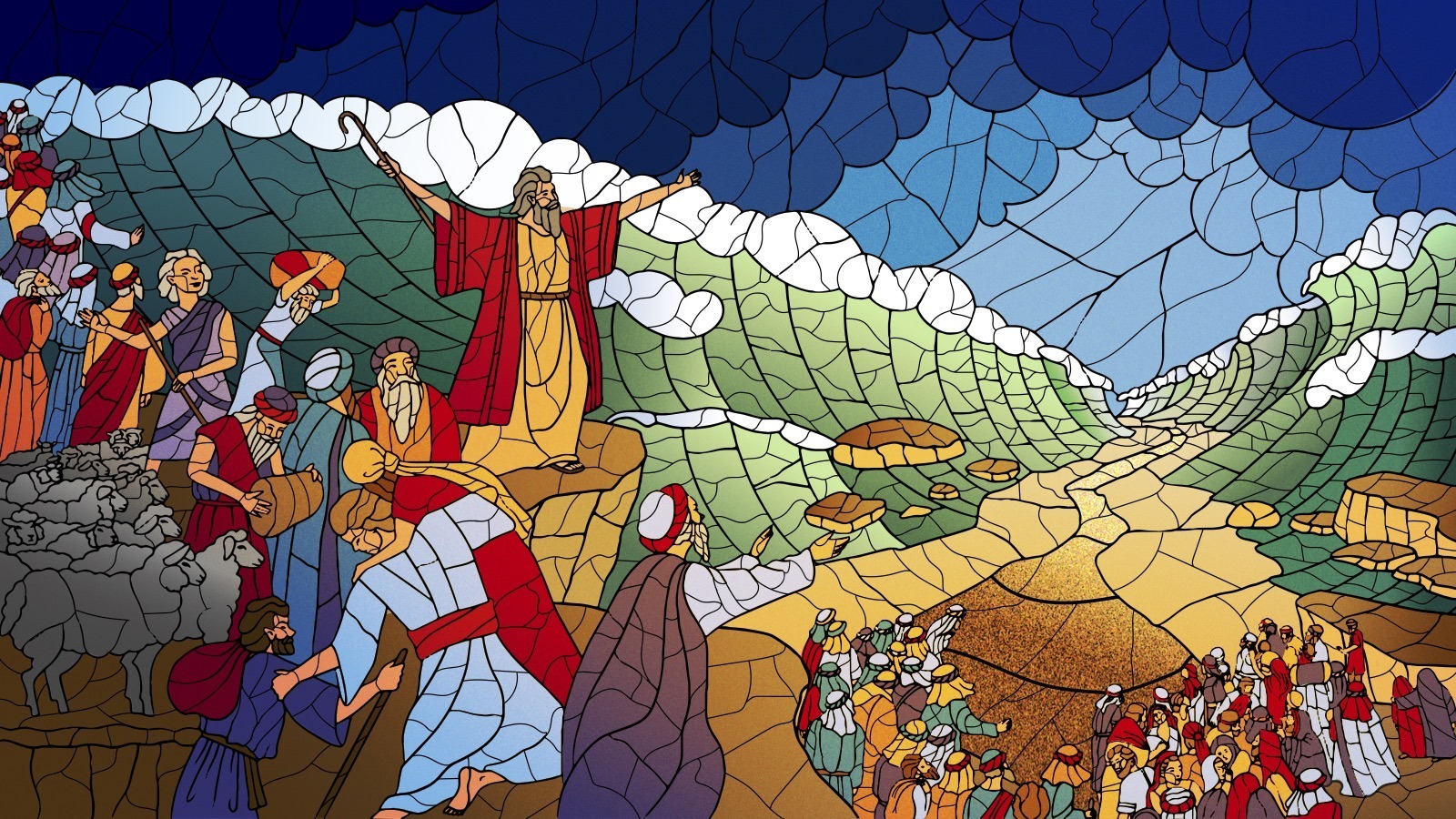Moses means “drawn out.”
Moses was an Israelite born in Egypt, in the lineage of Abraham, Issac, Jacob. Moses’ birth occurred during a period of oppression when the reigning King of Egypt (Pharaoh) ordered the murder of all male Hebrew infants. Moses’ mother placed him in an ark (most translations: “basket”) and placed the ark near the rivers edge where Pharaoh’s daughter saw him and rescued him. Moses survived in the house of the Egyptian Pharaoh. Even though a prince of Egypt, Moses was aware of his Hebrew/Israelite lineage. At around the the age of 40 Moses killed an Egyptian who was beating a Hebrew. When Moses’ action became known, he fled into the wilderness of Midian to escape the death penalty.
Moses worked as a shepherd, married and raised a family in Midian. After 40 years as a shepherd, God came to Moses in the miracle of a burning bush that was not burned up. God called Moses to return to Egypt’s next oppressive Pharaoh to deliver the Hebrews from bondage. Reluctantly, Moses obeyed God and through miraculous signs culminating in the Passover, he became the deliverer, leader, and prophet to God’s chosen nation, Israel.
At Mount Sinai, Moses began to receive the Law from God that would govern the nation of Israel. This was the beginning of the Sinai Covenant.
Throughout his leadership of Israel, he received ceremonial, governing, and civil rules for the Hebrew nation. Moses led the nation of Hebrews to the land of Canaan promised them as the descendants of Abraham, Issac and Jacob. The people, however, fearfully rejected God’s promises to conquer the land, and in judgement God proclaimed that they would be wanderers until their generation passed away. Moses continued to lead the new nation under God’s direction for another 40 years until his death at age 120.
The Bible honors Moses as the most humble man who ever lived up to his time. His deceased body was buried by God Himself.
Moses appears hundreds of years later when he recognizably meets with Jesus as recorded in the Gospel according to Luke.
Key verses: Genesis 2:10-15; 3:2,14; 12:7,11-13; 20:1-17: Deuteronomy 34:5-7 Luke 9:27-36 Hebrews 11:23-29

